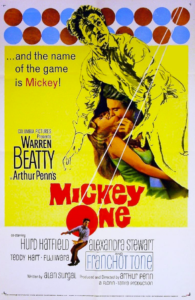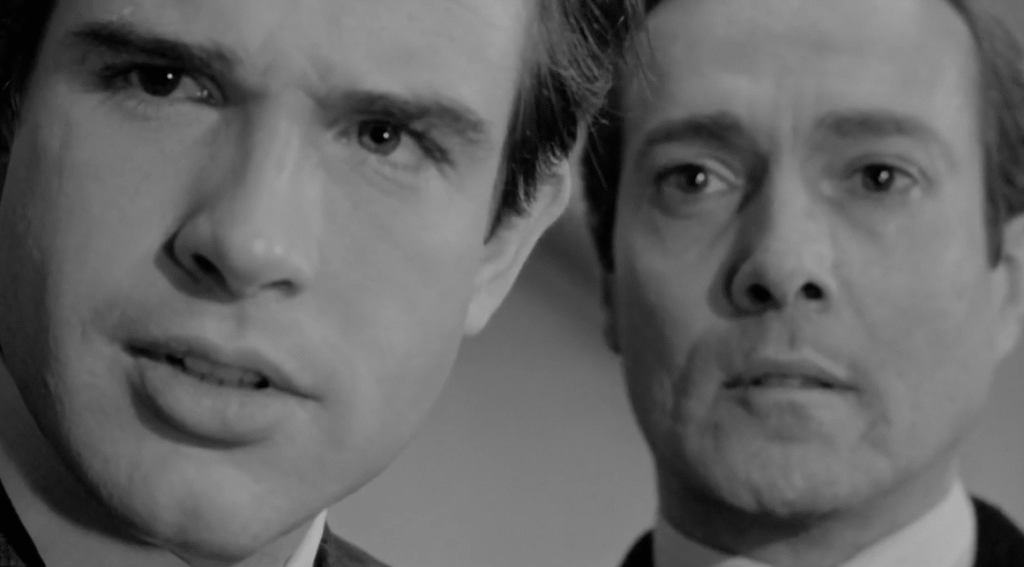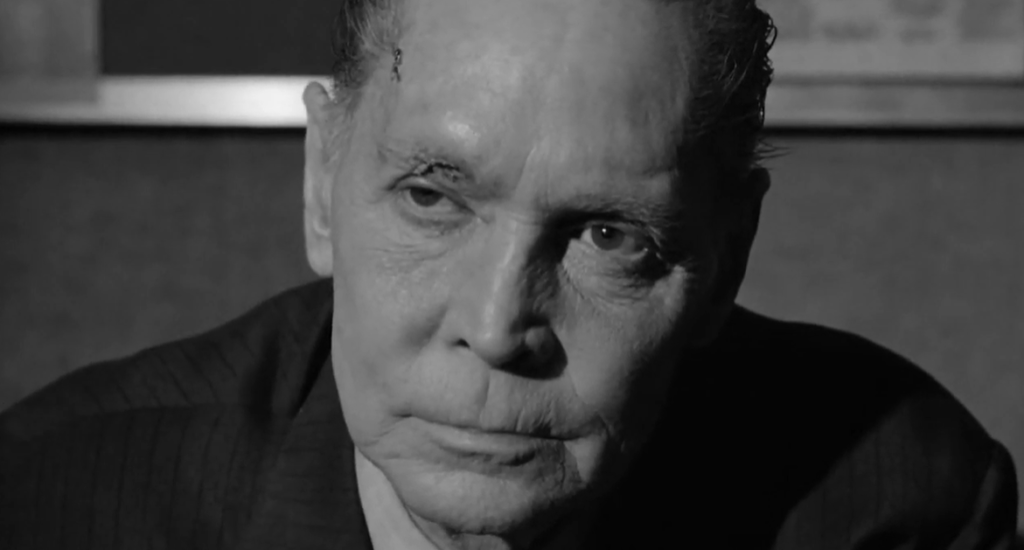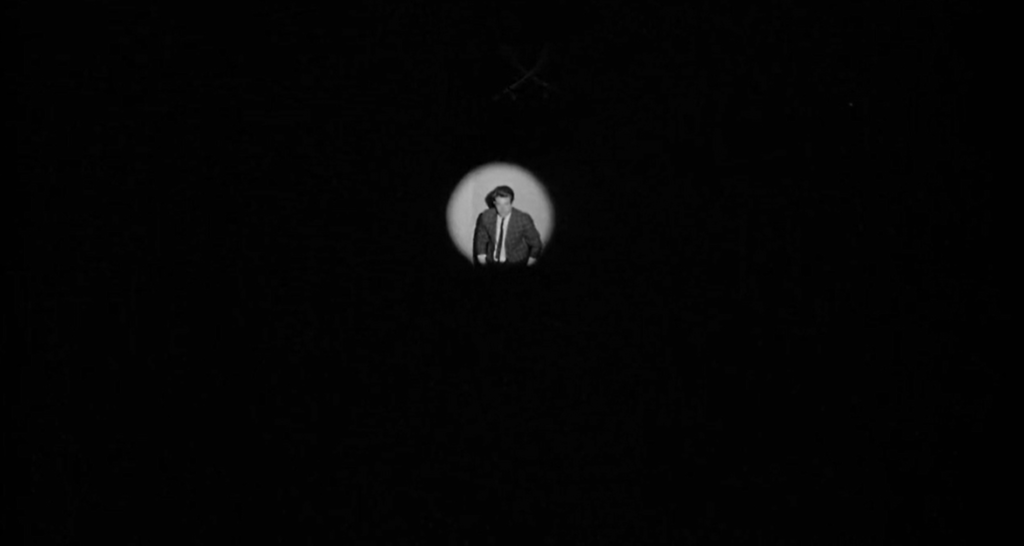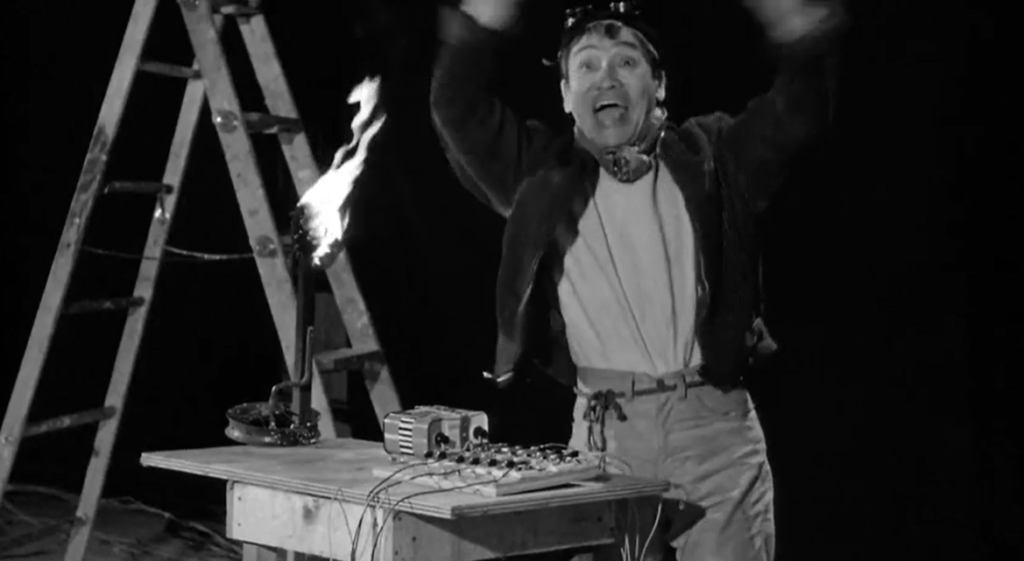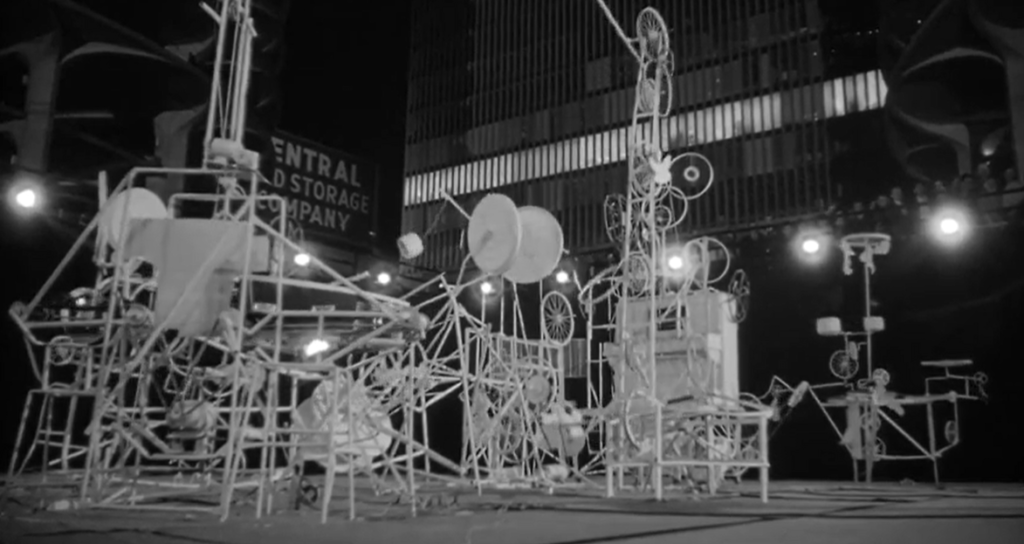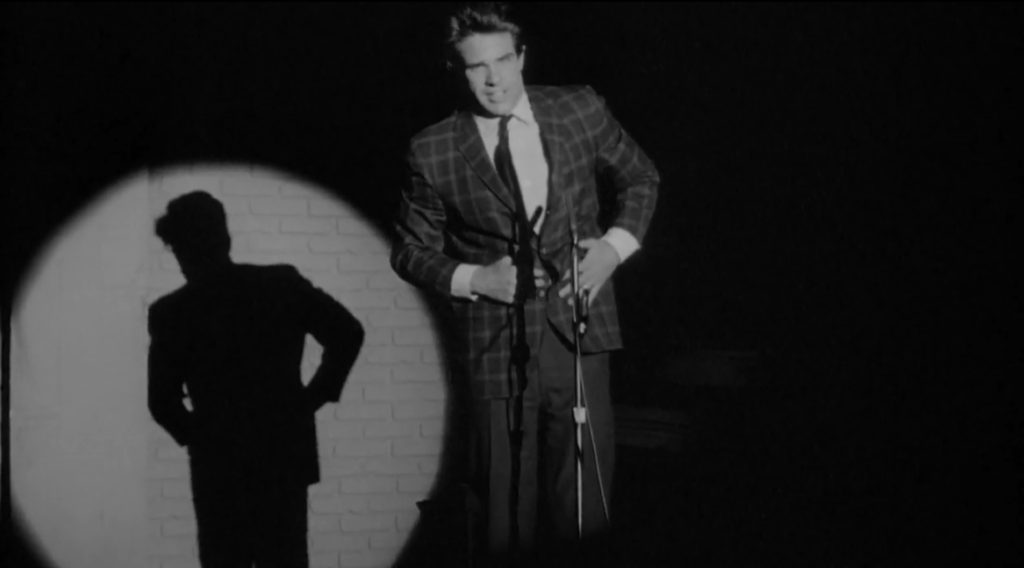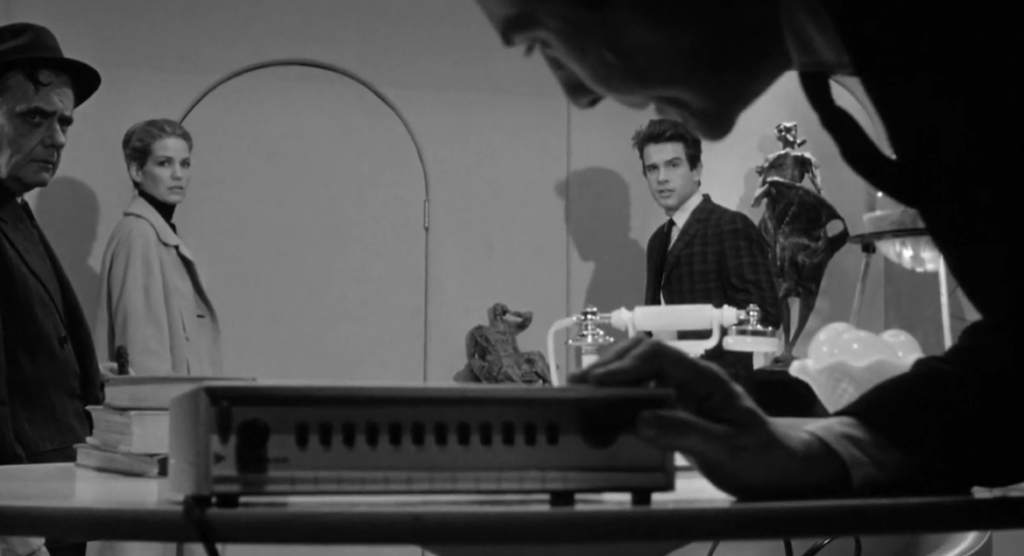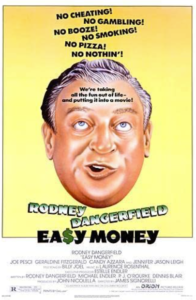|
Genres, Themes, Actors, and Directors:
- Comedy
- Geraldine Fitzgerald Films
- Inheritance
Review:
It’s difficult to know what to say about this utterly unfunny comedy — featuring Rodney Dangerfield, Joe Pesci, Geraldine Fitzgerald, and Jennifer Jason Leigh — which somehow raked in box office dough, and has been referred to on IMDb by at least one person as a “blue-collar white-trash classic.” Indeed, I spent the entire film scratching my head about how and why the four screenwriters (Dangerfield, Michael Endler, P.J. O’Rourke, and Dennis Blair) decided to pull together this particular set of circumstances and call it amusing. There are visual “gags” galore — like Dangerfield wearing his daughter’s wedding dress while it’s being altered (“See Dangerfield in drag!”):
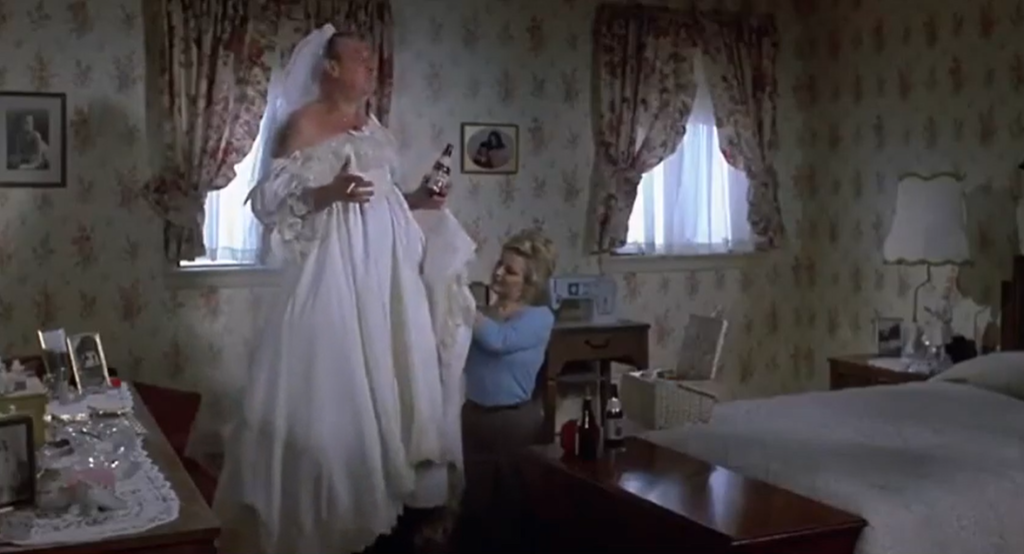
… or this odd scene in a department store, which I still can’t figure out the purpose behind. (Are store clerks who look just like mannequins… inherently funny? And if so, why?):
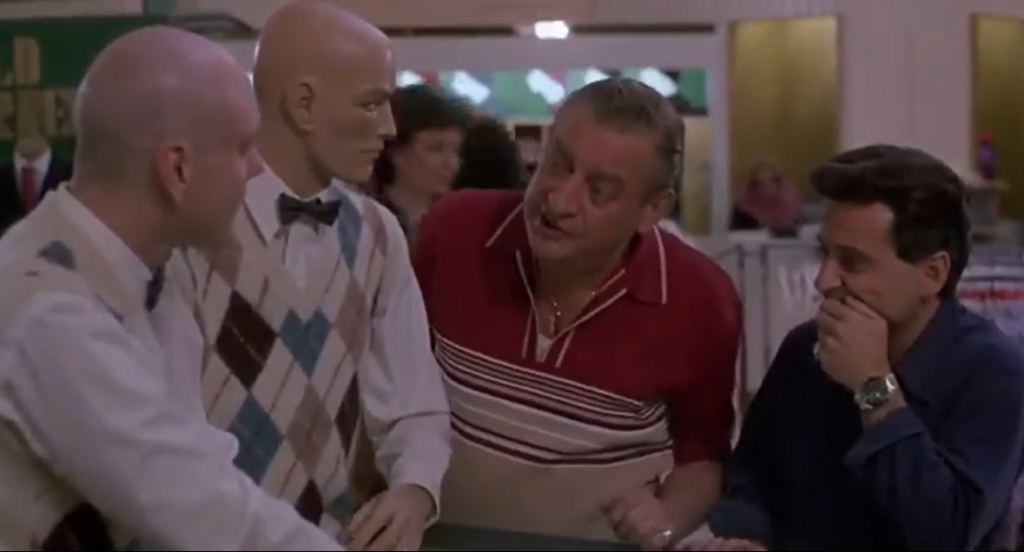
… but visual “humor” alone does not a comedy make. The opening schtick actually gives away the tenor of the movie, as Dangerfield asks a young girl at a birthday party how old she is (he’s the hired photographer), and after she flashes her hand to indicate “five,” he flashes back both his hands twice, saying, “Well, call me when you’re this, okay?” and then tries to give her relationship advice.
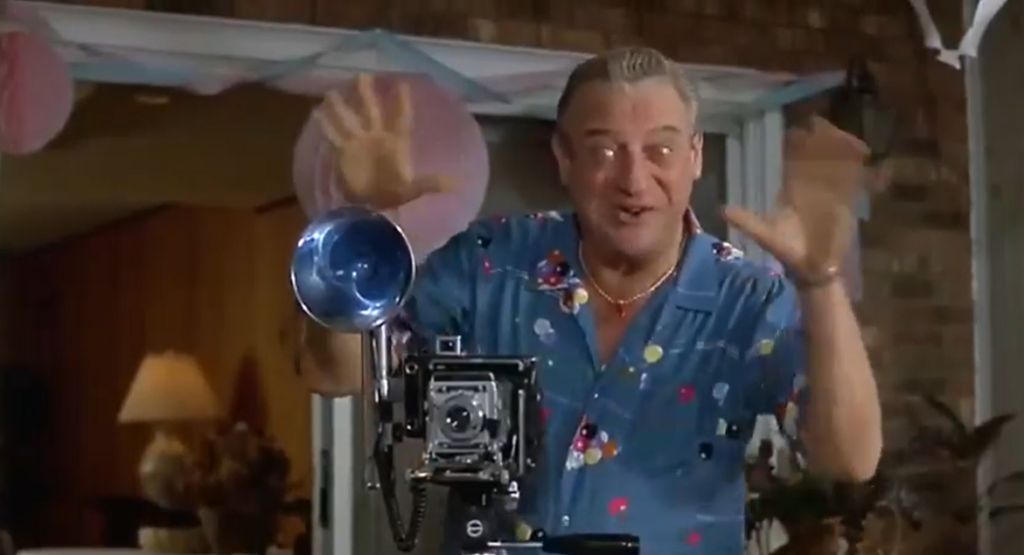
Maybe that explains the baffling subplot between Leigh and Negron, in which she somehow doesn’t understand anything about sex and refuses to sleep with her new husband out of fear her dad will be mad (? ew?).
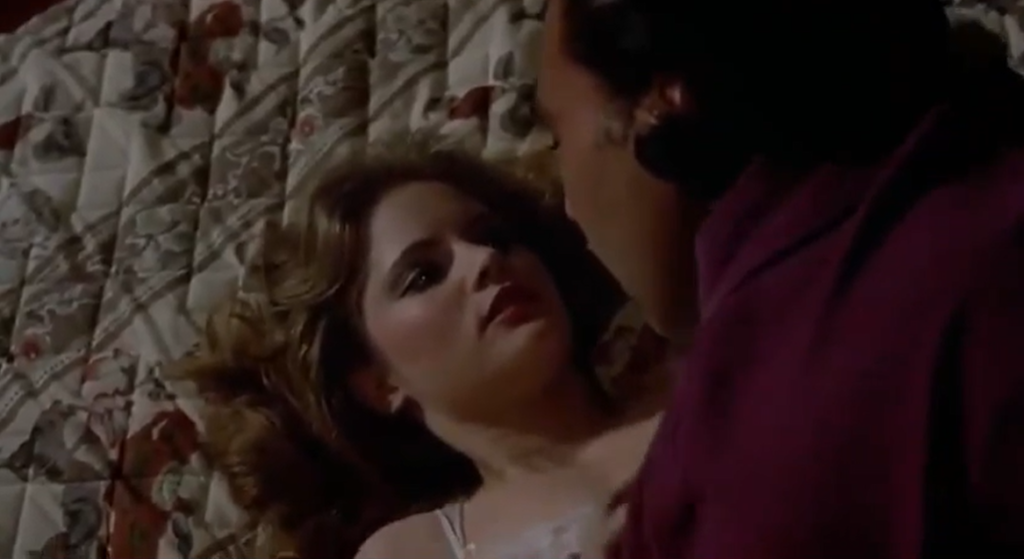
Meanwhile, Pesci hovers around the periphery like a random sidekick; in perhaps their worst scene together, they attempt to load an (obviously fake) giant wedding cake into the back of Pesci’s plumbing van, and… guess if it ends up okay? You get one guess only.
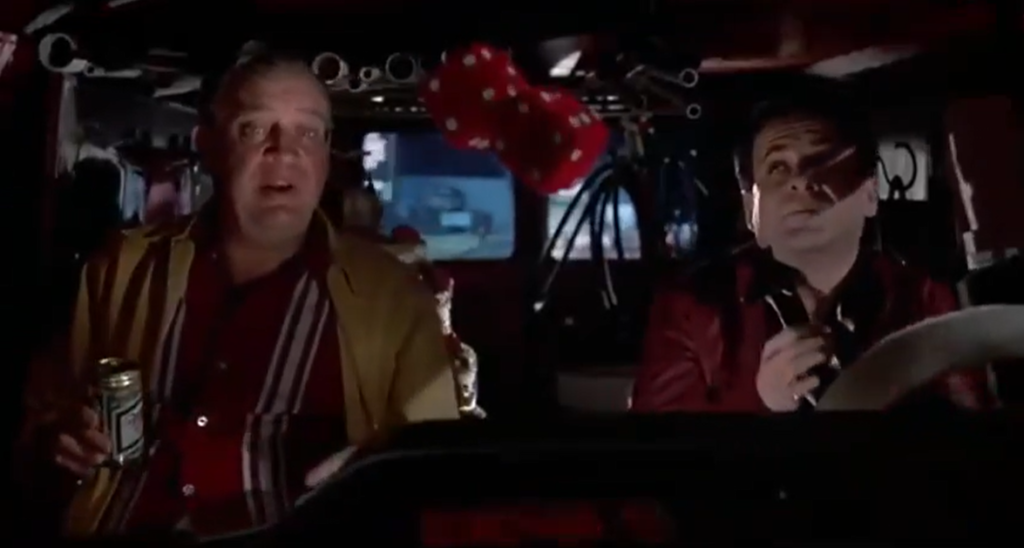
I vaguely understand that entire flick this meant to evoke the bizarre humor of W.C. Fields films, given attempts to “reform” Dangerfield out of his bad habits — but it simply doesn’t translate. (Then again, many of Fields’ films no longer seem overly amusing either.) Poor Fitzgerald doesn’t come across well:
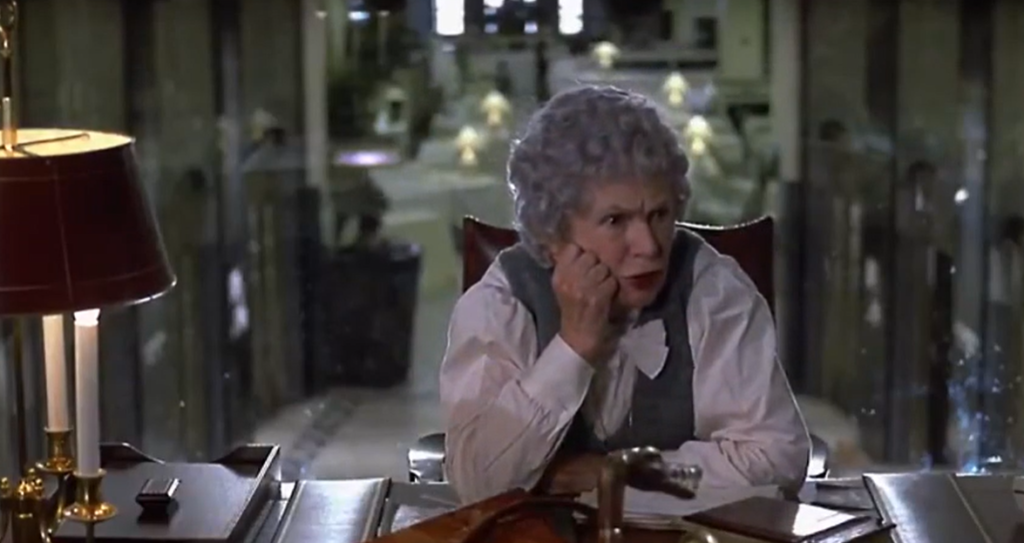
… and I have no idea why Dangerfield’s wife (Candice Azzara) is written as someone who adores him no matter what. Go figure. I’ve now said much more about this movie than I intended to, so I’ll call a halt to my review.
Notable Performances, Qualities, and Moments:
Not much of anything.
Must See?
Nope.
Links:
|
